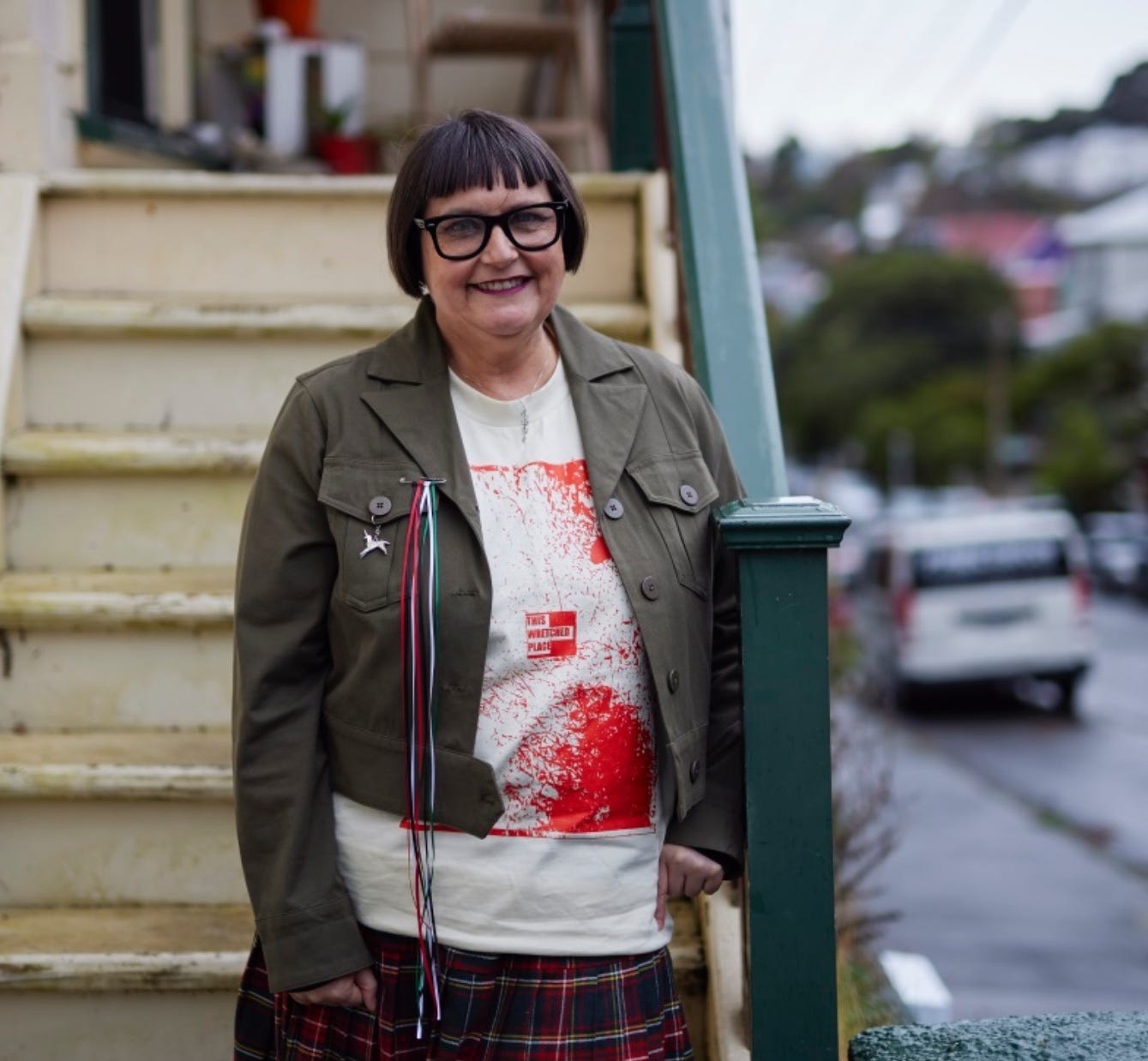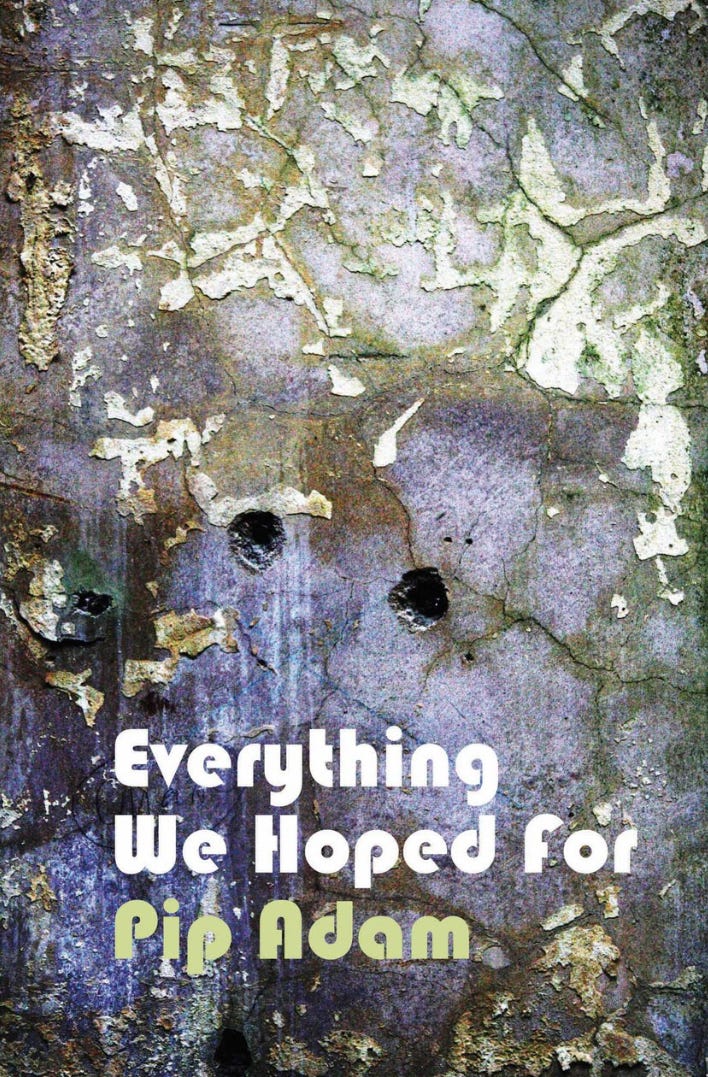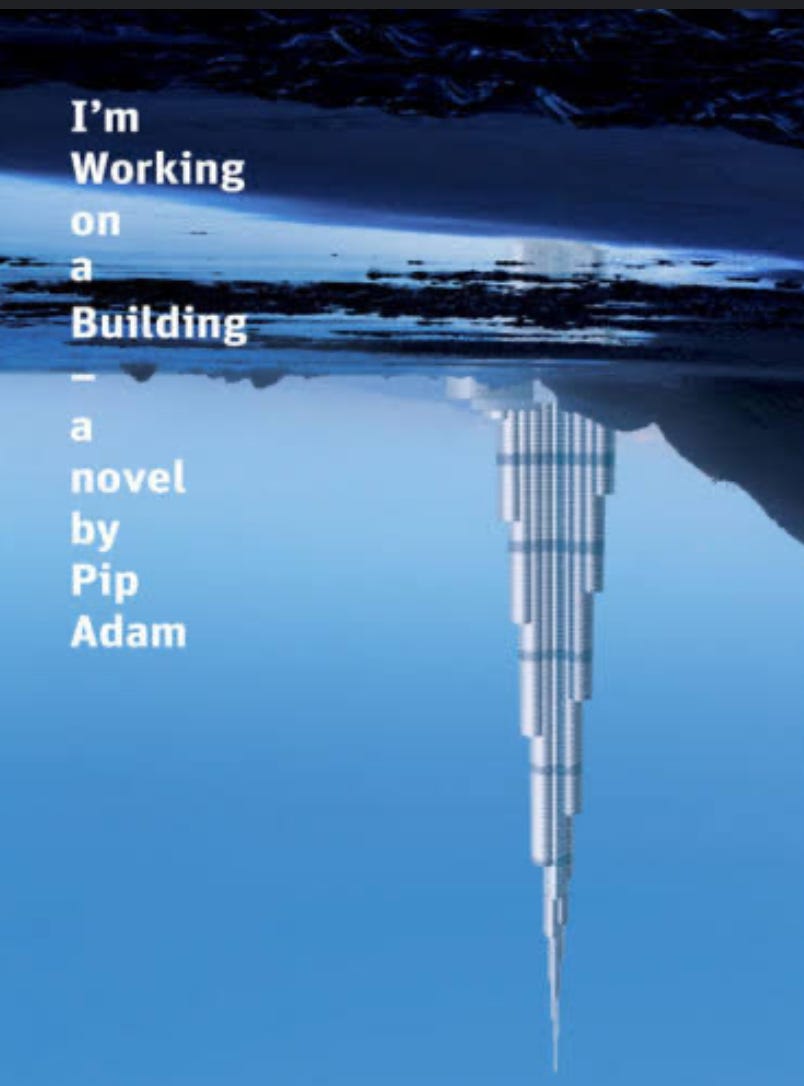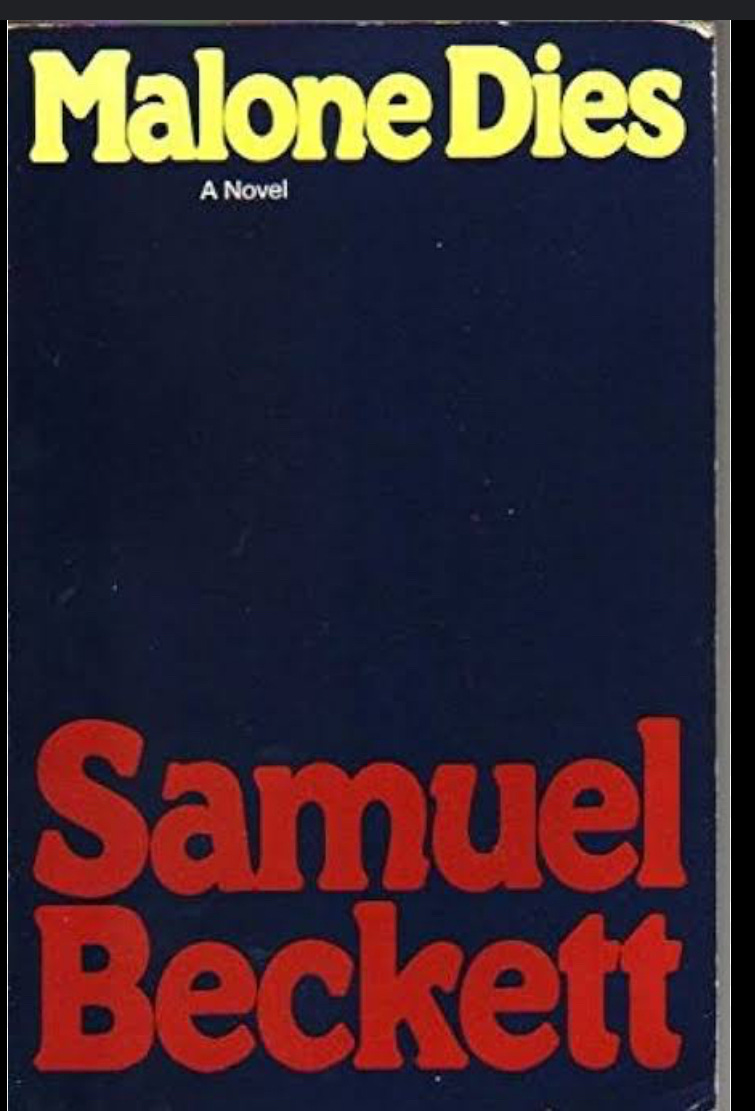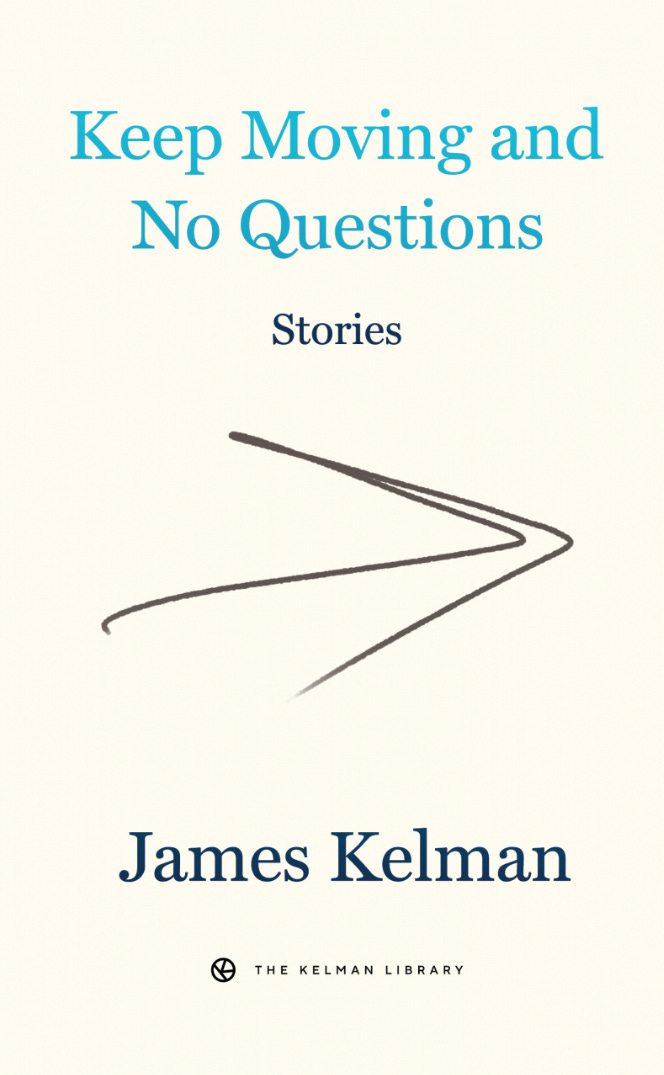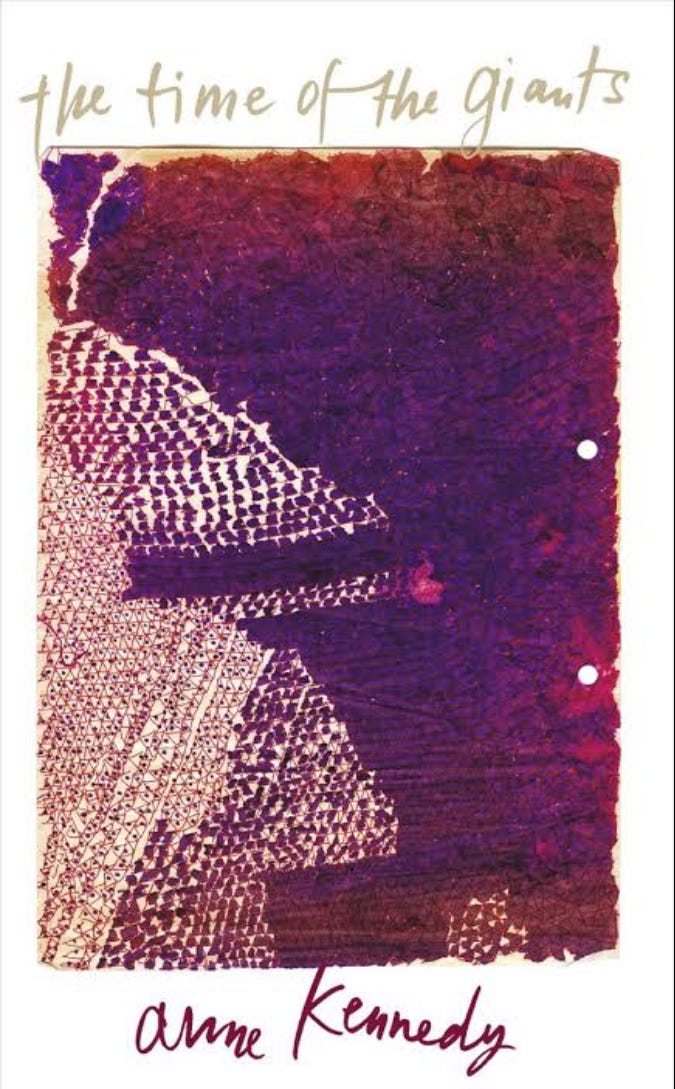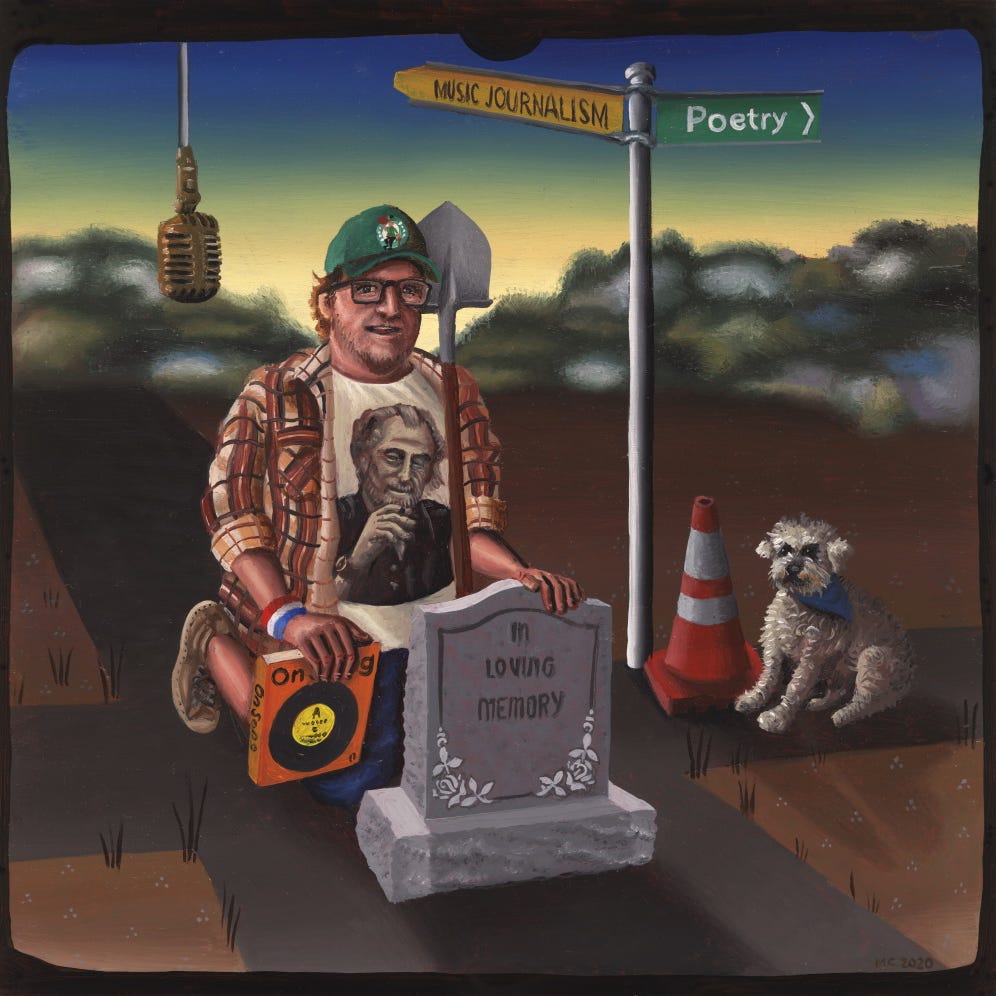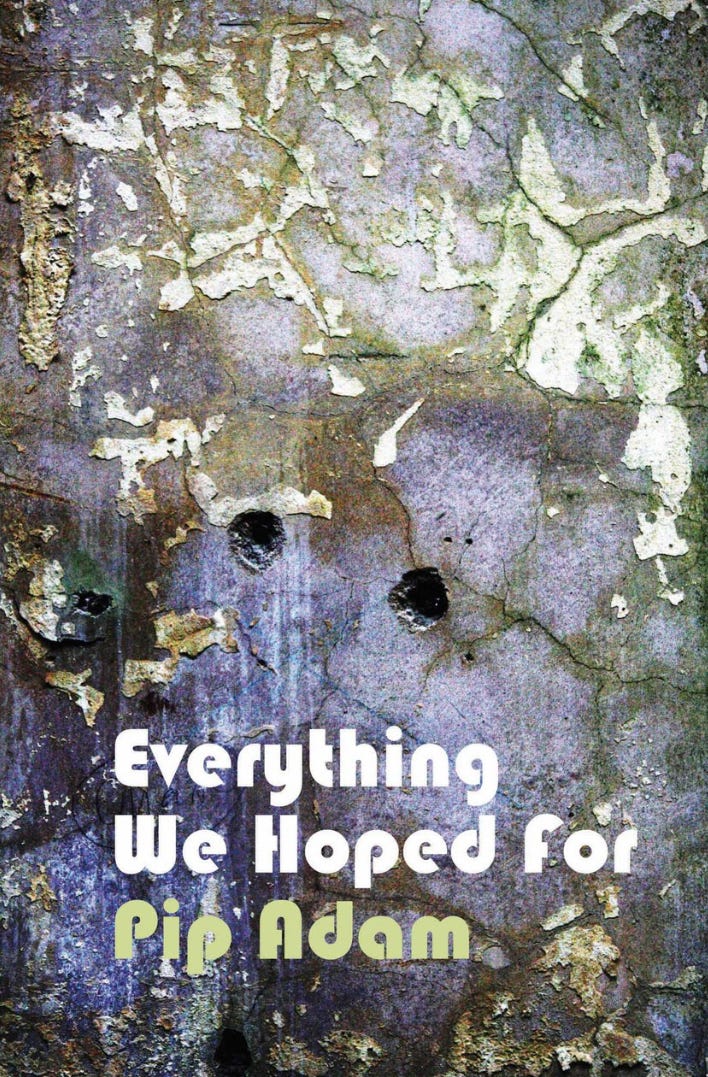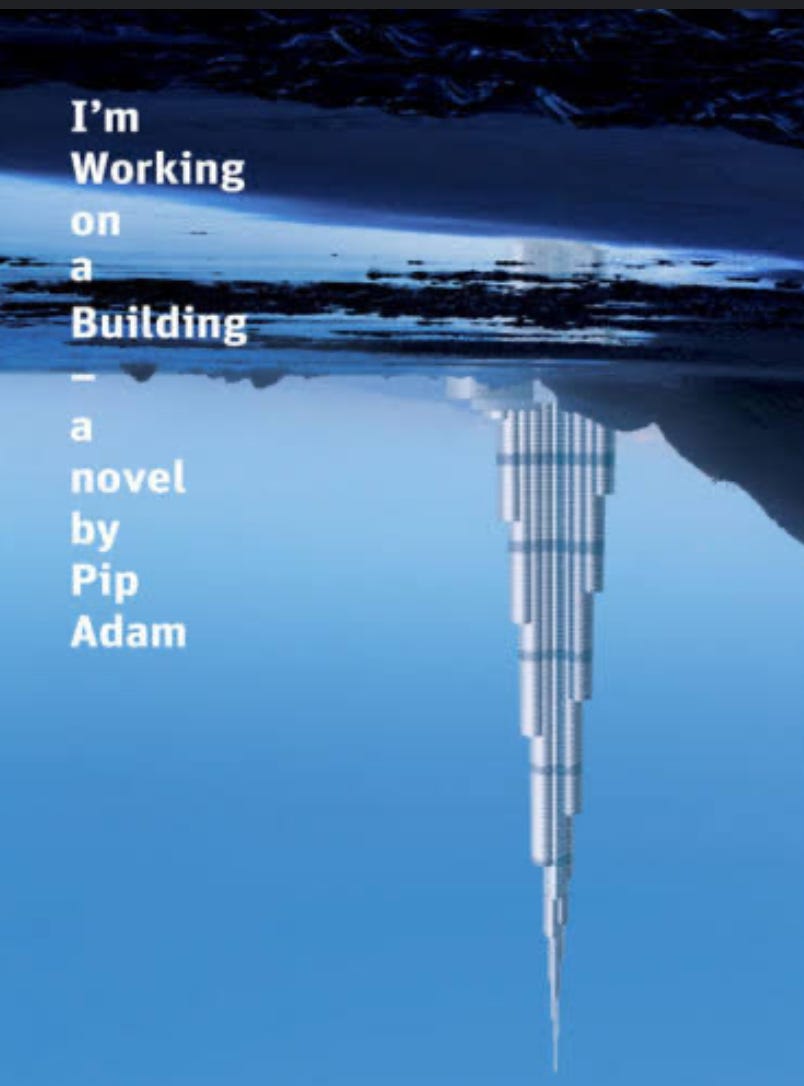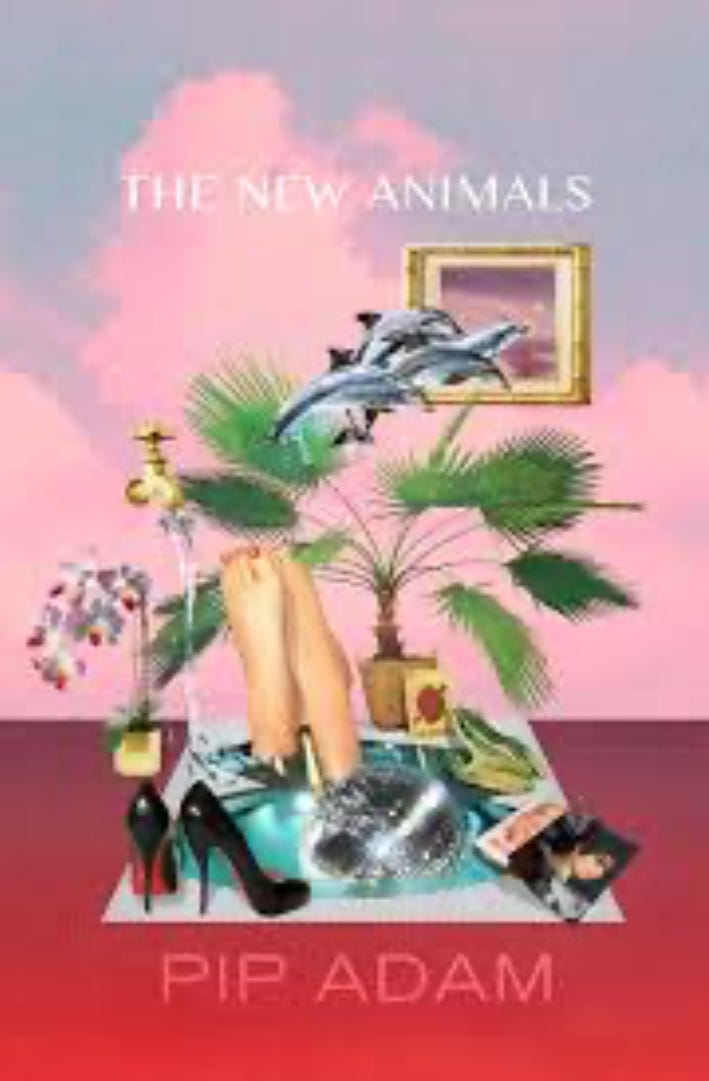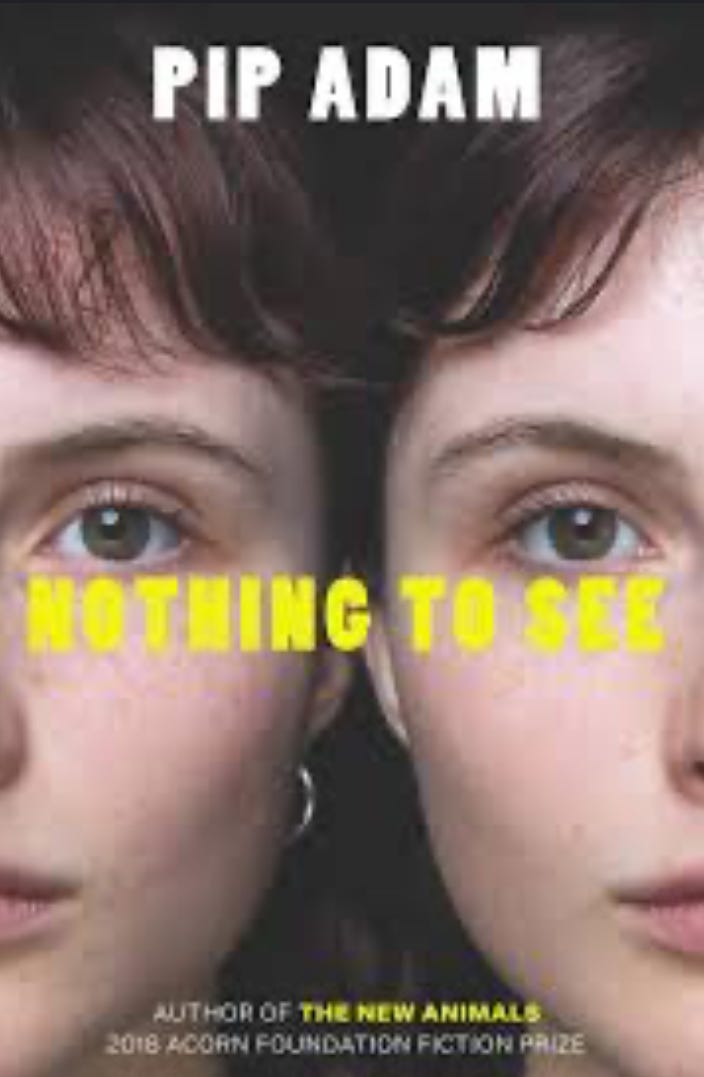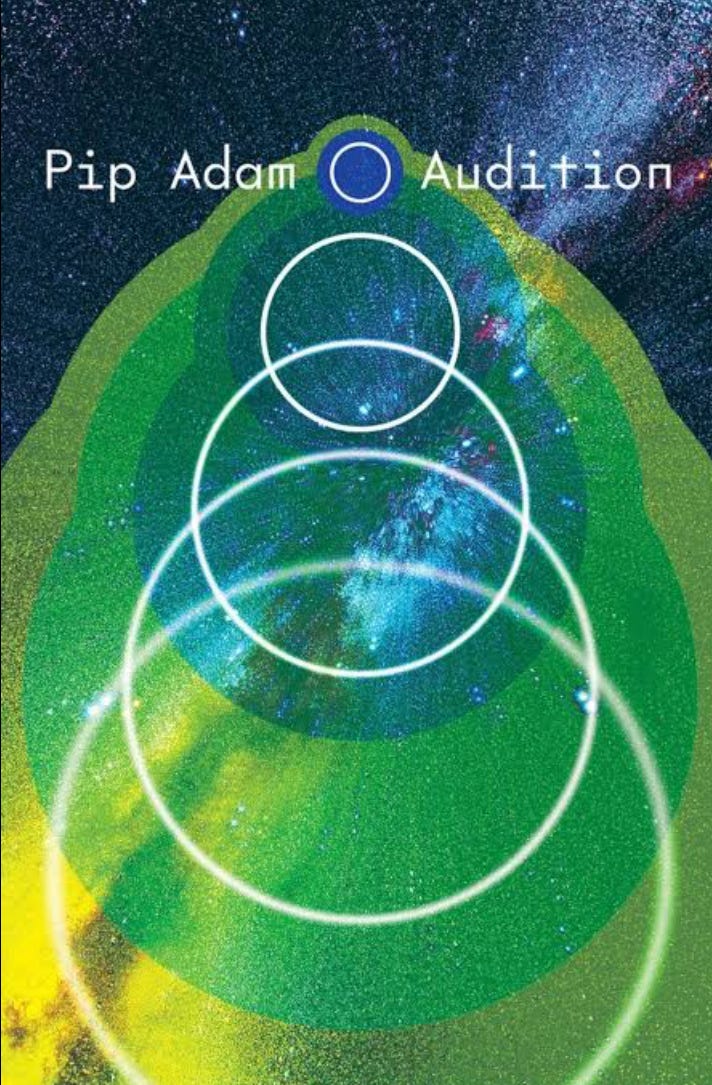Explorations of The Body, Transcendence, and Transcending the Body in the recent fiction of Pip Adam
Wednesdays is about books, and writing. Today, an essay about the recent work of one of New Zealand’s greatest writers. The body of work being built is about transcending the ‘structure’ of the body.
“Literature does its best to maintain that its concern is with the mind; that the body is a sheet of plain glass through which the soul looks straight and clear, and, save for one or two passions such as desire and greed, is null, and negligible and non-existent. On the contrary, the very opposite is true. All day, all night the body intervenes…” — Virginia Woolf, On Being Ill[i]
When Virginia Woolf wrote On Being Ill, she was discussing the body and its foibles. She was in bed, having suffered a mental breakdown. She compared her life with sickness and without, she preferred illness in many ways, she liked the idea of not escaping the body, of living with it, being in it; it being responsible for where you were and how you are. And life with illness allowed her to be tended to, waited on, and there was a nursing regression, a return to being ‘looked after’.
I believe that Pip Adam is slowly building a ‘body’ of work that explores the way the human body is a hindrance, almost — at times — an irrelevance. For her work, it is less about the “sheet of plain glass” and more about a mirror. We understand the notion of a writer holding their work up as a mirror to themselves, or to/of the world. Adam’s (literary) world is more about smashing that mirror. Particularly in what I’m calling a ‘trilogy’ of her most recent novels, starting with 2017’s The New Animals, and rolling on through 2020’s Nothing To See, and then 2023’s The Audition.[ii]
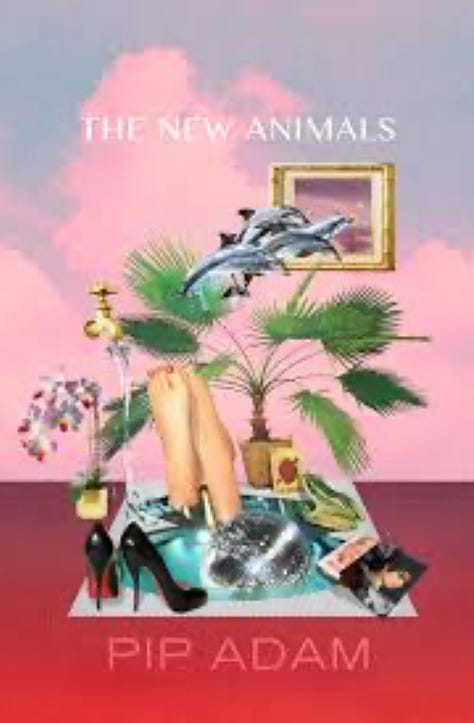
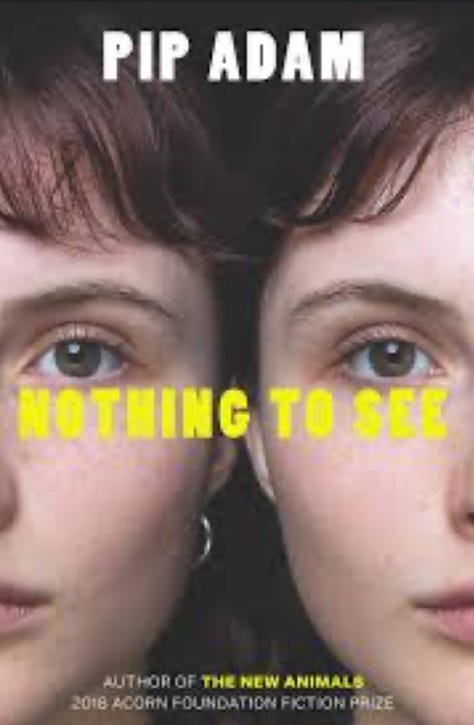
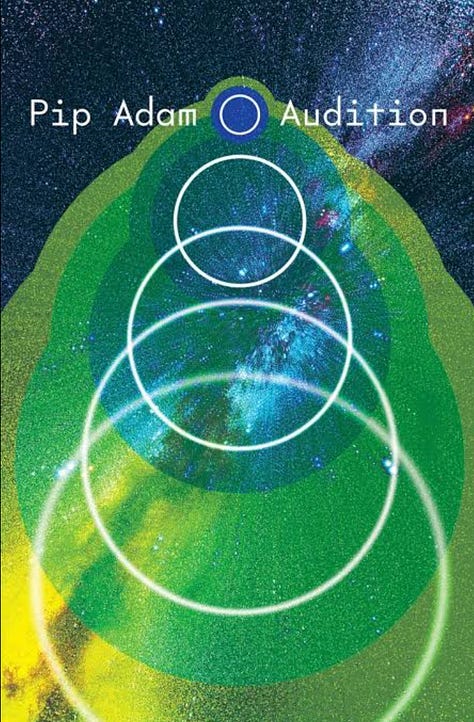
Speaking on the Beyond The Zero podcast in 2023, ostensibly in relation to the release of Audition[iii], Adam opined that she had possibly “been writing one book for ten years kind of, and it’s a book that’s interested in work, identity, and power struggles — and that’s what all the books have in common”.
Audio is a huge part of Adam’s identity (and work). She is a podcaster herself[iv] and has been involved in community radio, including being a station manager. When she said, on the aforementioned episode of Beyond The Zero that “there’s something very special about audio…[believing] a lot of our prejudices kind of come from sight”[v] it crystallised for me the belief that she has been building a body of work that breaks down the body, transmogrifying it (Audition), splintering it (Nothing To See), shape-shifting it, and allowing it to break through barriers in a manner similar to the cinematic fourth wall (The New Animals) across her recent novels.
In 2010, Adam released her first book. Short stories. Everything We Hoped For. [vi] In the story,This Is Better, there’s a description of the character Lloyd, home from his 9-5 job and awake a night, where the reader finds him, “Counting my teeth with my tongue and stroking the nail of my pointer finger with the pad of my thumb trying to catch my body working; exploring the machine of it, trying to be surprised”.[vii]
Justine Jungersen-Smith, in her July 2023 piece for Newsroom, goes on to compare Adam’s work across her first three novels that followed Everything We Hoped For as a continuation of the way she has described her character Lloyd in that story. Jungersen-Smith says, “with each book she presses down further into the world to see if she can catch it working. What is this place? She asks. What are buildings? What are bodies? What are humans?”[viii]
Yes. To all of that. But at some point Adam took the mild stunt-work of telling I’m Working On A Building’s plot in reverse-order (a trick that is as likely to have come from the film world, Christopher Nolan say, as it is Time’s Arrow by Martin Amis) and gave herself full license to not just ask what bodies are, but to show them twisting and morphing, and then use that as part of the device of having her plots twist and morph.
I’m Working On A Building showcases the pared-back style that Adam adores in Samuel Beckett (she names him first, and James Kelman second amid “the touring troupe I hold in my head and my heart”; saying that her own work is “a performance that doesn’t come out of the blue, it’s in rehearsal with…” and then names Beckett, Kelman and Andrea Lawlor and Jody Rosenberg[ix]).
Compare these moments from two novels by two different writers composed 62 years apart:
“They lived there. Ate there, slept there, studied. They would talk to each other in the corridors, in the lounges. They watched television there, answered emails, received physical mail, went to reception.” [x]
And:
“I have lost my stick. That is the outstanding event of the day, for it is day again. The bed has not stirred. I must have missed my point of purchase, in the dark […] The stick, having slipped, would have plucked me from the bed if I had not let it go.”[xi]
These are two different pieces of writing from two different writers. The first is Adam, from her 2013 novel, I’m Working On A Building. The second is Beckett, from his 1951 classic, Malone Dies. There’s nothing that suggests these passages need to even be treated the same, for ostensibly there is no real parallel. Maybe a little intrigue in their blankly stated ennui. The boredom of bodies in the world. But what binds them is the rhythm. They pull the reader in to wonder what will happen next. Only enough information is being supplied with each word or phrase. There’s no real hint of what is next. For further information we must continue to read. We cannot guess where it is going, there are not enough clues, and no real hint of drama. It is the mundane being matter of factly documented.
But after Building — and you could say a building is a ‘body’ for bodies, a container that holds us during various hours, be it home, or office, or place of other function — Adam really started to focus on what the body, the human body, might look like if we took hyper-realism and morphed it with the fantastical; the boundary-breaking, wall-breaking careful-recklessness of prose not quite leaping from the page, but certainly left-turning inside its own story.
Kelman’s prose, like Beckett’s also, has a similar rhythm. But it also has a claustrophobia to it that is, again, in Adam’s more recent novels. This too is almost as much from the world of cinema as it is the world of literature. We feel these words in close-up, we can’t see the world beyond what is in front of the nose of the character, because the author is only giving us what they want us to see; is concerned with very interior lives.
Here’s Kelman from Keep Moving And No Questions, the title story of his 2023 collection:
“I was watching this drop of water on the tip of an old woman’s nose. It didn’t quiver. We were sitting on a bench at a bus stop outside St Pancras Station. The rain had stopped some twenty minutes ago. I got a bar of chocolate from a machine. The old yin took the piece I offered and chewed on it for a long time”.[xii]
And here’s Adam from 2020’s Nothing To See:
“But they decided to eat it now. While it was warm. At least some of it, and they would all take it for lunch tomorrow and see what it was like cold, and if it was okay then they’d make it on Friday night and wrap it in something and catch a bus and go to the picnic at the beach park”.[xiii]
Yes, both passages feature food, and a bus, and parks/park benches. But they are not the same. What makes them the same is the intensity of the closeness. The way we are following the (again, largely mundane) action as it is unfolding. Right in front of the nose of the character/s. And therefore, being pushed under our nose with no room to look wider, until we are given something that is happening in a wider world.
When Adam released Audition in 2023, its title becoming a pun, or intended misreading/double-reading, Adam meaning it for the ‘audio’ aspect of audition (“I keep saying to people it’s meant in the sense of a synonym for ‘hearing’. But of course the book is an appeal in the form of a performance”[xiv]) I couldn’t understand how the book might sit with anyone unfamiliar with her previous work. The first third of Audition is like an ‘audition’ for a script that is then abandoned. We can understand this with the knowledge of what the writer has done beforehand. Building’s reverse-chronology leading to The New Animals’ abandoning of plot (or at least the plot’s main character) two-thirds of the way through, to Nothing To See having a character split and morph from one, to two separate (connected) people and then back to one (using a They pronoun), and then Audition all but abandons its ‘beginning’ plot after the first third, in an almost-reversal of The New Animals’ conditions. This is not to say that Adam is operating as (only) a literary trickster. But as much as she has said her book wants to be in conversation with the reader (“the role it wants is that of conversation-mate: it wants to be in dialogue with a reader’s own thoughts and experiences”[xv]) is it not also a case of her recent works being in conversation amongst themselves?
Adam says (specifically of Audition) that “it wants to perform a reality that isn’t here in the hope this experiment will up the tiniest creak of a possibility”[xvi]. It is here that she links her work to that of Kelman and Beckett (as well as Lawlor and Rosenberg) but isn’t her work also in dialogue with her own previous works; particularly if she continues to tell non-linear narratives, to radically rattle the ribcage of the novel, so as to shift its heart.
In the Acknowledgments that close Audition (essentially an ‘Author’s note’ placed at the back rather than front of the book) Adam makes “special mention” of Anne Kennedy’s 2005 volume of poetry, The Time of the Giants. She suggests her own work “writes back in love and thanks” to Kennedy’s book, after acknowledging the inspiration and joy of Anne’s work[xvii]
So the giants went on a ship which in those days
was a way of going to heaven
or hell depending. They said goodbye like dying
with a kiss and a last cup of tea
and a weeping procession
and a fiddling down to the sea.[xviii]
This passage alone feels like the very one Adam is responding to. This sets a challenge up, one where Adam not only rises to take it, but immediately tells audiences of either book to hold her beer! Audition’s giants hurtle towards an unknown, in a continually uncomfortable situation, outgrowing themselves, but confined by their situation. This is how we meet them. We are given the Beckett treatment, think too of his play Happy Days this time, its character buried to her waist, then to her neck but still remembering “such happy days”[xix] is similar to the dialogue of Adam’s giants, who are continuing to remind themselves of things, and in a disturbingly upbeat manner — “‘I feel like there used to be more room’, says Stanley. ‘Like before this. I feel like I want to say, This is a beautiful ship’.”[xx]
We are in super close-up, so we can all but feel the discomfort of the giants, compared with Kennedy’s wider lens (“So the giants went on a ship…”).
But that’s where Adam wants us, up close, and in tight. For her ‘tricks’, her little literary deceptions and inventions, are the work of a close-hand magician. And so often, working in response to authors is Adam’s way of not just creating a dialogue, but of electrifying an acoustic canon. In the Malone novels, and in the plays Endgame and Happy Days, and in other, shorter one act plays, Beckett is often working with decay. His characters cannot escape their bodies. They are the very house for existential inquiry. His characters sit, as Woolf did when writing On Being Ill, in their bodies. The mind may travel, or try, but there is no actual escape. Adam creates metaphorical escapes, seeing the body as hindrance. But also the metaphor of movement, or explained through movement, shows physical discomfort (Audition) or physical awkwardness (Nothing To See) or a metaphysical freedom (The New Animals) which ultimately all ask the reader to read close to see, and feel, and even hear trauma, and/or attempted escapes from past traumas. Characters transitioning, characters morphing; these are characters struggling with the societal definition of ‘the body’. These are characters alone in the world they inhabit, so seeking another — pushing doors open, or smashing through the ‘sheet of plain glass’.
Beckett challenged traditional narrative storytelling, and that is his gift to Adam. She writes in the same pared-back, immaculately crafted and laboured-over short sentences, but where he reflected drabness back on itself, Adam is forever seeking worlds that burst with colour, that hope for more than what is hidden; that remind us that fiction is always showing us truth, telling us truths, basing itself in many facts or in things that are known, but it also must be fantastical on some level, for it is fiction. It is fantasy. It is the unknown quantity that resonates with whatever swirl of truth.
Adam’s ‘trilogy’ of recent books, just might be the one big book she’s been working on across a decade — working on a body of work. It morphed, splintered, swapped itself, split open into three separate stories. These stories ‘talk’ to the places they have come from. Kelman’s gritty realism, Beckett’s minimalism. The transcendence that Adam achieves is through making the inner anguish of her characters noticeable through showing changes in their outer appearance; through connecting those two things. When she spoke on the podcast of her love for all things radio, and audio, it was around removing the judgment of bodies. Two voices on the radio, be it terrestrial or internet-enabled, are there for what they are and for all we can hear: two voices. When we see the picture of the person it adds layers of complexity, though not always in the best way. As a writer of fiction, creating written images of bodies, Adam is controlling her narrative through the changing shapes of human bodies, challenging not only the shape of the body, but sometimes even the species. She is using her fictional worlds to take us on what I hope I can pun as being an out-of-body experience.
Audition’s rich layers, The New Animals’ wall-breaking, Nothing To See’s tight internal dilemmas, these are new worlds because of the new way of writing them.
Feelings are felt in the body, even as much as they might be expressed through the mind. When Adam talks about the writers she feels she is in dialogue with, or hoping to be in dialogue with, she talks about carrying their work in her head and in her heart. But the reaction she feels when she thinks about them guiding her is something in her body. It is visceral. She talks of their work as sonar, but doesn’t say she feels it in her ears, or even with her ears. She says:
The beep-beep of their work is the sonar I hear in my body as I write – ‘warmer, warmer, warmer, cold’.”[xxi]
Pip Adam’s books are available where you get good books — through Te Herenga Waka University Press
Articles Referenced:
Adam, Pip, ‘My work always comes from somewhere else’, Academy of New Zealand Literature, 2023 (anzliterature.com)
Fassler, Joe, ‘We Sweat, Crave, and Itch All Day’: Why Writing About Bodies Is Vital, April 1, 2014, The Atlantic (theatlantic.com)
Jungersen-Smith, Justin, A Brief History of Pip Adam, July 24, 2023, Newsroom (newsroom.co.nz)
Mills, Jennifer, Forms of Power: A brilliant Rendering of Traumatic Memory, August 2023, Australian Book Review (australianbookreview.com.au)
Sipowicz, Maks, Peggy and Greta: The Difficult Path to Self Acceptance, Australian Book Review, May 2021 (australianbookreview.com.au)
Books:
Adam, Pip: Everything We Hoped For, Te Herenga Waka Press, 2010
I’m Working On A Building, Te Herenga Waka Press, 2013
The New Animals, Te Herenga Waka Press, 2017
Nothing To See, Te Herenga Waka Press, 2020
Audition, Te Herenga Waka Press, 2023
Beckett, Samuel: Malone Dies, Penguin, 1951
Happy Days, Grove Press, 1961
Endgame, Grove Press, 1964
The Complete Short Prose: 1929-1989, Grove Press, 1995
Kelman, James: Keep Moving and No Questions: Stories, PM Press, 2023
Kennedy, Anne: The Time of The Giants, Auckland University Press, 2005
Podcasts:
Better Not Read hosted by Pip Adam
Beyond The Zero (2023 episode) Pip Adam featured as a guest.
[i]The quote is from Virginia Woolf’s essay, as attributed, but my source for this quote is from Joe Fassler’s essay, ‘We Sweat, Crave, and Itch All Day’, from The Atlantic, which in turn takes the quote from a piece by the essayist Leslie Jamison. Jamison’s response to this quote is largely irrelevant to my use of it here, but I want to acknowledge its proper sourcing.
[ii] ALL Te Herenga Waka Press
[iii]Beyond The Zero, 2023
[iv] Better Off Read
[v] Beyond the Zero
[vi]Everything We Hoped For, Te Herenga Waka Press, 2010
[vii]This is from Everything We Hoped For, but my quoting of it is in fact taken from Justine Jungersen-Smith’s piece, A Brief History of Pip Adam, from the Newsroom website (newsroom.co.nz), July 24, 2023
[viii] Ibid.
[ix] Adam, Pip: ‘My work always comes from somewhere else’, Academy of New Zealand Literature, 2023 (anzliterature.com)
[x] Adam, Pip: I’m Working On A Building, Te Herenga Waka Press, 2013, P.126
[xi]Beckett, Samuel: Malone Dies, Penguin, 1951, P. 100
[xii] Kelman, James: Keep Moving and No Questions, PM Press, 2023, P. 6
[xiii] Adam, Pip: Nothing To See, Te Herenga Waka Press, 2020, P. 82
[xiv] Adam: ‘My work always comes from somewhere else’, anzliterature.com
[xv] Ibid.
[xvi] Ibid.
[xvii]Adam, Pip: Audition, Te Herenga Waka Press, 2023, Pp.223-224
[xviii]Kennedy, Anne: The Time of The Giants, Auckland University Press, 2005, P. 15
[xix] Beckett, Samuel: Happy Days, Grove Press, 1961
[xx]Adam: Audition, P. 13
[xxi] Adam: ‘My work always comes from somewhere else’, anzliterature.com




